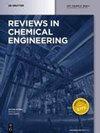Biogenic potassium: sources, method of recovery, and sustainability assessment
IF 6.6
3区 工程技术
Q1 ENGINEERING, CHEMICAL
引用次数: 0
Abstract
Nutrient management methods based on ecosystems are crucial for providing agricultural nutrient needs while reducing the environmental impact of fertilizer usage. With increasing agricultural production, the global demand for potassium is increasing, with India importing potassium from countries like Canada, USA, Israel, and Russia. Biomass-fired industries generate biomass ash as a residue so management of the resultant ash is important. Agricultural residue ashes contain abundant potassium so could potentially be used for fertilizer application. This review describes different potassium sources and recovery processes, including chemical precipitation, water extraction, solvent extraction, membrane separation, and ionic exchange. Extraction time, temperature, and solid to solvent ratio affect the recovery of potassium from biomass ash. Water extraction is the most commonly used method for potassium recovery from biomass ash. The environmental impact of potassium fertilizer recovered from biomass ash is less than that of mining source of potash. This paper discusses topics not covered in previous reviews, such as different biosources of potassium, latest recovery methods, and life cycle assessment of these methods. The gaps identified in the reports are addressed, and future research opportunities are presented.生物钾:来源、回收方法和可持续性评估
基于生态系统的养分管理方法对于满足农业养分需求,同时减少化肥使用对环境的影响至关重要。随着农业产量的增加,全球对钾的需求也在增加,印度从加拿大、美国、以色列和俄罗斯等国进口钾。生物质燃烧工业会产生生物质灰烬作为残留物,因此对产生的灰烬进行管理非常重要。农业残留物灰烬含有丰富的钾,因此有可能用于施肥。本综述介绍了不同的钾来源和回收工艺,包括化学沉淀、水萃取、溶剂萃取、膜分离和离子交换。萃取时间、温度和固体与溶剂的比例会影响生物质灰烬中钾的回收。水提取是从生物质灰烬中回收钾的最常用方法。从生物质灰烬中回收钾肥对环境的影响小于开采钾肥。本文讨论了以往综述中未涉及的主题,如不同的钾生物资源、最新的回收方法以及这些方法的生命周期评估。本文探讨了报告中发现的差距,并提出了未来的研究机会。
本文章由计算机程序翻译,如有差异,请以英文原文为准。
求助全文
约1分钟内获得全文
求助全文
来源期刊

Reviews in Chemical Engineering
工程技术-工程:化工
CiteScore
12.30
自引率
0.00%
发文量
37
审稿时长
6 months
期刊介绍:
Reviews in Chemical Engineering publishes authoritative review articles on all aspects of the broad field of chemical engineering and applied chemistry. Its aim is to develop new insights and understanding and to promote interest and research activity in chemical engineering, as well as the application of new developments in these areas. The bimonthly journal publishes peer-reviewed articles by leading chemical engineers, applied scientists and mathematicians. The broad interest today in solutions through chemistry to some of the world’s most challenging problems ensures that Reviews in Chemical Engineering will play a significant role in the growth of the field as a whole.
 求助内容:
求助内容: 应助结果提醒方式:
应助结果提醒方式:


